QuestionHey Ron, I have read a lot of your past questions and you ratings...so I know I am dealing with a professional here. I mainly searched your answers on Green Terrors to find an answer to both of my questions, but I did not find them. If you have answered these 2 questions before...I apologize.
I have 4 green terrors in a 55 gallon tank. They have the tank all to themselves except for a 12" pleco. One of the fish has grown a little bit more than the rest, but none of them have grown very rapidly, and I am a little disappointed. I have had them for almost a year now. Ironically, the biggest one has just recently had most of it's dorsal, tail, and anal fins picked off by the little ones...still trying to figure that out.
My questions are:
1. What kinds of food & feeding schedule should I follow to maximize the growth of my green terrors? Are there any "tricks" to getting them to grow to their full potential?
2. Second, I am really bummed about the big one getting picked on so badly. They seem to be leaving him alone now and they actually seem kind of intimidated by him. If they leave him alone, will the fins grow back and look normal?
Thanks so much.
Ryan
AnswerHi Ryan,
Size is important but motivation is even more important. Is it possible that two of the smaller green terrors were nesting (at which point their motivation to protect their nest size will trump and size difference) and caused them to attack the larger green terror?
I feed most of my fish TetraCichlid flakes and the larger guys get Tetra sticks. I feed once a day and occassionally skip a day.
Fins generally grow back. If the damage was right down to the hard rays then those don't usually grow back right. They might not grow back at all, or might grow back stunted or crooked. If the damage was just to the fin material (i.e., the thin frilly stuff), that usually can grow back to its original shape and size and in many cases with no detectable differences from the original. It is most likely to be successful if the fish has a chance to recuperate without being attacked again for awhile.
-- Ron
rcoleman@cichlidresearch.com
Cichlid Research Home Page <http://cichlidresearch.com>

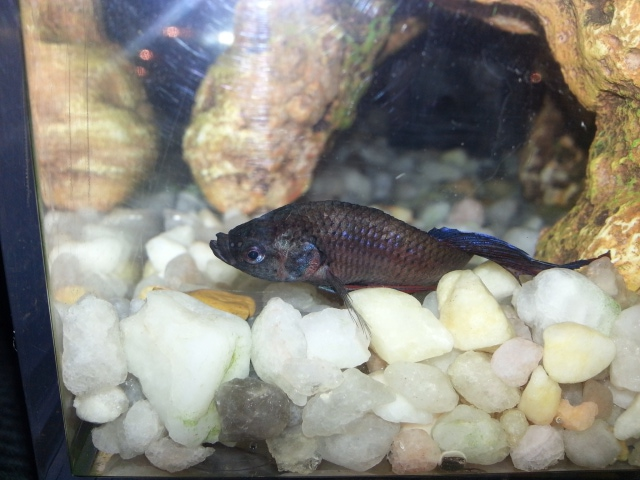 Sick Betta
Question
Image 1 Image 2
My Betta has been
Sick Betta
Question
Image 1 Image 2
My Betta has been
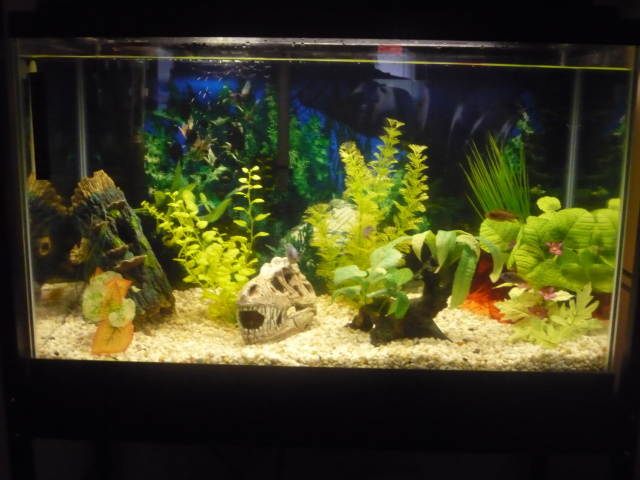 29g cichlid tank too full?
Question
29g cichlid tank
I have a 29gal tank which hou
29g cichlid tank too full?
Question
29g cichlid tank
I have a 29gal tank which hou
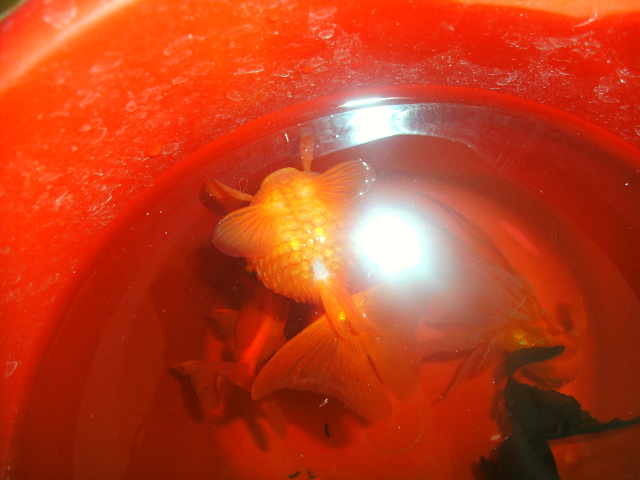 My Goldfish looks in pain.. :-(
Question
poorly fish..
I have just gone to clear my gol
My Goldfish looks in pain.. :-(
Question
poorly fish..
I have just gone to clear my gol
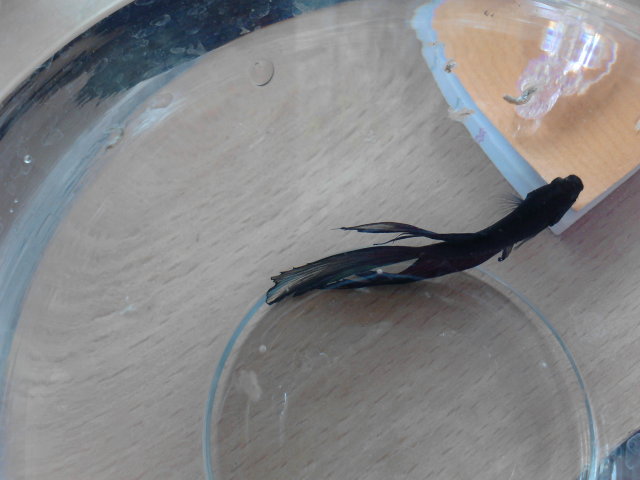 Beta Fish- dull, flits about the tank, lost appetite
QuestionBlue Beta
QUESTION: Hi Jaymie,
I read
Beta Fish- dull, flits about the tank, lost appetite
QuestionBlue Beta
QUESTION: Hi Jaymie,
I read
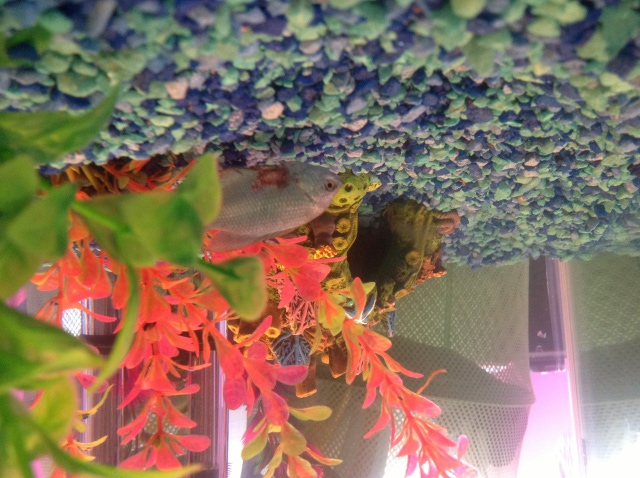 Gourami is sick/injured!
QuestionGourami
QUESTION: Hi,
We are new fish ow
Gourami is sick/injured!
QuestionGourami
QUESTION: Hi,
We are new fish ow